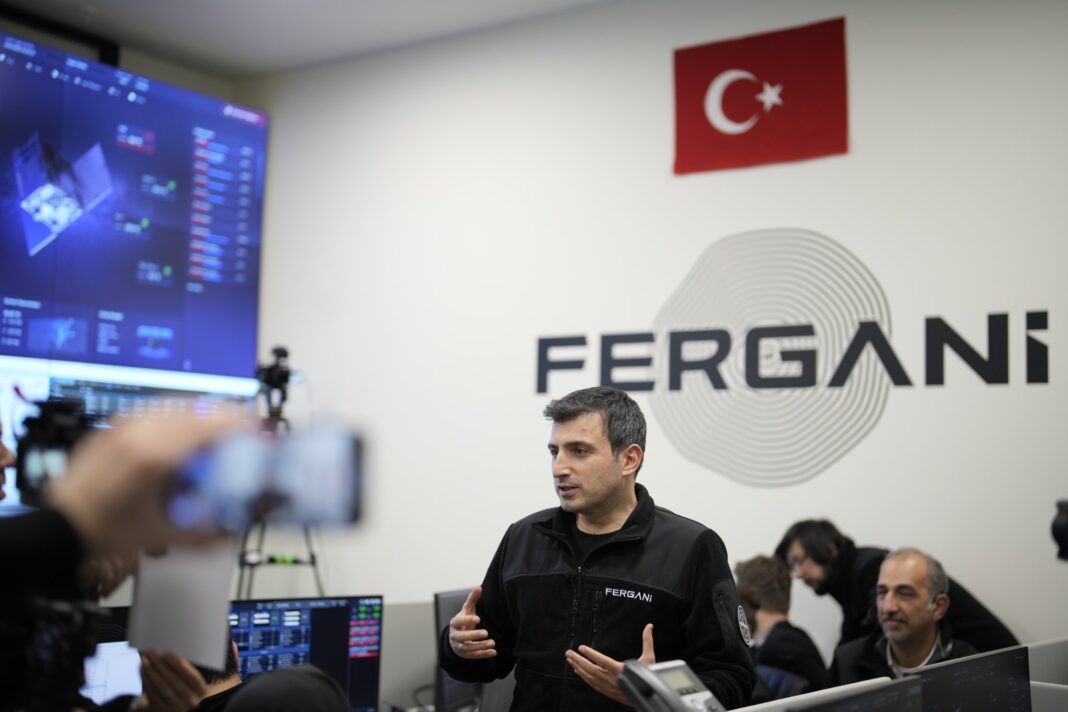A private Turkish space company founded by Selçuk Bayraktar, chairman of defense contractor Baykar and son-in-law of President Recep Tayyip Erdoğan, launched its domestically developed satellite aboard SpaceX’s Falcon 9 rocket on Tuesday, the state-run Anadolu news agency reported.
The launch took place at 10:09 p.m. local time under the SpaceX Transporter-12 mission, which carried 131 payloads, including American cube satellites, microsatellites and orbital transfer vehicles. SpaceX CEO Elon Musk facilitated the launch, continuing collaboration with Turkey’s space program. Musk and Erdoğan have previously discussed space and investment projects during meetings in New York and Ankara.
The Turkish Space Agency (TUA) confirmed the launch, describing it as a milestone in small geostationary satellite technology. TUA announced on X that the satellite would provide global communication and positioning capabilities.
Türkiye’nin Uzay Ekosistemi Büyümeye Devam Ediyor!
@ferganispace_ , ilk uydusu FGN-100-d1'i SpaceX’in Falcon 9 roketiyle uzaya göndererek Small-GEO kategorisinde yeni bir dönemi başlattı. Haberleşme ve coğrafi konumlandırma alanında küresel kapsama sunacak uydu, geleceğin… pic.twitter.com/P6ykRZufKv
— Türkiye Uzay Ajansı (@tuajans) January 14, 2025
The satellite, the FGN-100-d1, weighs 102 kilograms and is the largest satellite developed by a private Turkish company. It separated from the launch vehicle 62 minutes after liftoff, reaching its Sun-synchronous orbit (SSO) at an altitude of approximately 510 kilometers. It began its mission by transmitting telemetry data.

Developed entirely with domestic resources, the satellite is equipped with three flight computers and is designed to test telemetry, positioning, and payload communication capabilities. It is the first of a planned constellation of 100 satellites, known as “Uluğ Bey,” named after a 15th-century Central Asian astronomer. According to Bayraktar, the constellation aims to establish a Turkish global positioning system rivaling GPS, Galileo and other major systems.
The launch aligns with Turkey’s broader space ambitions, including plans for a satellite launch facility in Somalia, announced in December 2024. Somali President Hassan Sheikh Mohamud confirmed the project, which analysts suggest could bolster Turkey’s role in the global space industry.
Bayraktar also announced plans for a 50-ton launch vehicle capable of carrying 1.5-ton satellites into orbit, with Somalia’s launch facility potentially serving future missions. Analysts note that such projects reflect Turkey’s intent to expand its aerospace footprint but also highlight concerns about preferential treatment for Baykar and its affiliates.
A recent Presidential Decree granted TUA expanded powers to establish domestic and international companies for satellite and launch vehicle development. The decree also permits TUA to collaborate on national and international projects, raising questions about the potential impact on market competition. Critics argue that these developments mirror the advantages Baykar has enjoyed in the defense sector.
Baykar has previously faced scrutiny for leveraging close ties to Erdoğan’s administration. The company’s drones, such as the Bayraktar TB2, have been exported to over 30 countries, benefiting from significant government support and high-profile promotions during Erdoğan’s foreign visits.





